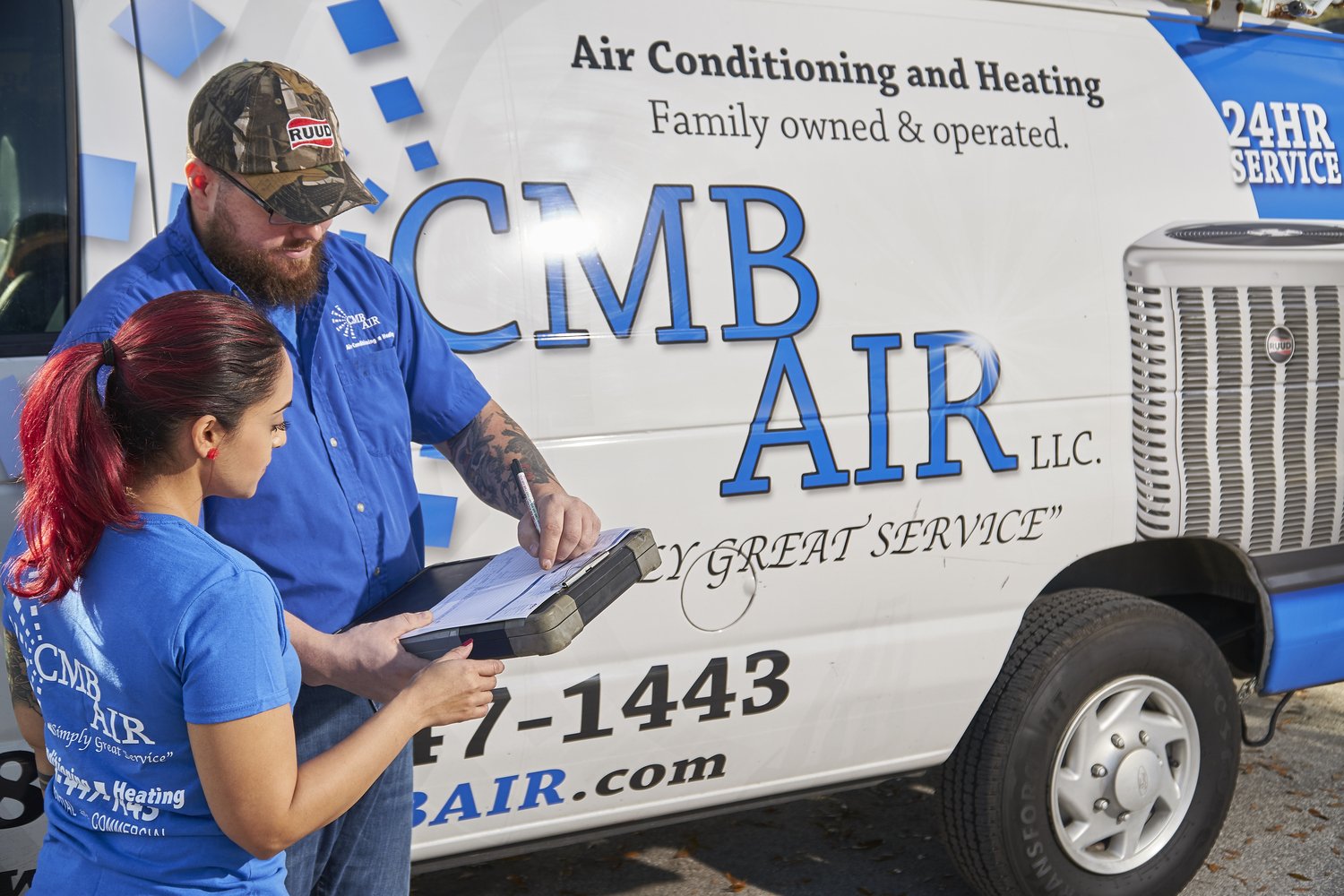
Furnace Gas Valve Replacement in Tampa and Surrounding Areas
The furnace gas valve is a critical component of a gas-fired furnace system and controls the natural gas flow to the burner assembly. Its primary function is to regulate fuel supply to the furnace based on signals from the thermostat, ensuring efficient and safe operation. When the thermostat calls for heat, the valve opens to allow natural gas to flow into the burner assembly, where it mixes with air and ignites to produce heat. Conversely, when the desired temperature is reached, the gas valve closes, stopping the gas flow to the burner and halting the heating process.
-
In addition to controlling gas flow, the furnace gas valve also incorporates safety features to prevent gas leaks and ensure proper combustion. Modern gas valves often have safety shutoff mechanisms that automatically close the valve if a malfunction or unsafe condition is detected, such as a flame failure or excessive gas pressure. These shutoff valves protect against potential hazards such as gas leaks, carbon monoxide emissions, and furnace malfunctions, ensuring the safety of occupants and the integrity of the heating system.
For homeowners, replacing a Lennox, Honeywell, or Goodman furnace gas valve is essential for maintaining the efficiency and safety of their heating systems. Whether it's a Lennox gas valve replacement, Honeywell furnace gas valve replacement, or Goodman gas valve replacement, homeowners can trust experienced HVAC professionals to handle the job with expertise and precision. These reputable professionals understand the nuances of different furnace brands and models, ensuring the replacement process is seamless and effective. With their knowledge and skill, technicians can recommend the appropriate gas valve replacement for each specific furnace, ensuring optimal performance and peace of mind for homeowners.
Benefits of Timely Gas Valve Replacement
-
Maintains safe furnace operation
Regularly replacing aging gas valves prevents potential gas leaks and maintains proper fuel regulation within the heating system. Modern gas valves incorporate advanced safety features that monitor gas flow and shut off the fuel supply when irregularities are detected. Professional valve replacement includes thorough testing of all safety mechanisms and calibrating gas pressure settings. This critical maintenance task protects the home and its occupants while supporting reliable furnace operation throughout the heating season.
-
Improves energy efficiency
New gas valves provide precise control over fuel flow, optimizing combustion and reducing wasted energy. The improved regulation capabilities of modern valves allow the furnace to operate at peak efficiency levels. Proper gas valve function contributes to consistent flame patterns and heat output, reducing the energy needed to maintain comfortable temperatures. This enhanced control translates into lower utility costs and more effective heating performance.
-
Prevents unexpected breakdowns
Proactive gas valve replacement addresses potential issues before they lead to system failures. Regular valve maintenance helps identify wear patterns and performance changes that could indicate developing problems. Professional replacement services include comprehensive system checks to identify related components needing attention. This preventive approach minimizes the risk of heating system failures during periods of peak demand.
-
Enhances furnace lifespan
A well-functioning gas valve supports the proper operation of all furnace components, reducing stress on the entire system. Installing new valves helps maintain optimal combustion conditions, preventing damage to heat exchangers and other crucial parts. Regular valve updates contribute to sustained equipment performance and reliability. This investment in system maintenance helps extend the operational life of the heating equipment.
-
Restores optimal heating performance
New gas valves deliver a consistent fuel supply for stable heating output and temperature control. The precise regulation provided by modern valves supports efficient burner operation and heat transfer. Updated valve components eliminate performance issues related to worn or damaged parts. This restoration of proper fuel control leads to more comfortable and reliable heating throughout the home.
Our Gas Valve Replacement Process
Initial inspection and diagnostics
Our certified technicians comprehensively test the current gas valve operation and system performance. We utilize specialized diagnostic equipment to measure gas pressure, analyze flame characteristics, and evaluate safety control functions. Inspection includes assessing related components and connections to identify additional maintenance needs. This detailed evaluation guides our recommendations for valve replacement or repairs.
Safety shut-off and gas disconnection
Our team follows strict safety protocols when isolating the gas supply and securing the work area. Professional-grade testing equipment confirms complete gas line shutdown before beginning any replacement work. We implement multiple safety checks throughout the disconnection process to protect technicians and property. Our systematic approach prioritizes safety while preparing for efficient valve replacement.
Removal of the old gas valve
Our experienced technicians carefully disconnect and remove the existing valve using specialized tools and techniques. We document the original valve configuration to support properly installing the replacement component. The removal process includes inspection of connecting pipes and fittings for wear or damage. Our attention to detail during removal prevents damage to surrounding components and prepares for clean installation.
Installation of a new, compatible gas valve
We select appropriate replacement valves based on manufacturer specifications and system requirements. Our installation process includes proper positioning, secure mounting, and precise connection of all gas lines and control wiring. Each installation follows industry standards for gas fitting and electrical connections. The new valve undergoes initial calibration to match system specifications before final testing begins.
Testing for leaks and performance checks
Our thorough testing protocol verifies the integrity of all new connections and proper valve operation. We conduct multiple pressure tests to confirm the absence of gas leaks throughout the system. The testing process includes verification of proper flame characteristics and safety control functions. Our comprehensive performance evaluation validates safety and efficiency before returning the system to service.
Our Reviews
Customer care is our priority.
Why Furnace Gas Valves Fail
-
Furnace gas valves can fail due to age and wear. Over time, the valve’s internal components can degrade, leading to issues such as corrosion, leaks, or mechanical failure. Continuous usage and exposure to heat and pressure exacerbate wear and tear, eventually causing the valve to malfunction. Regular maintenance and timely replacement can help mitigate the effects of age and wear on furnace gas valves.
-
Corrosion is a common cause of furnace gas valve failure. Exposure to moisture and chemicals, such as those found in combustion byproducts, can lead to corrosion of the valve's internal components. Over time, this corrosion weakens the valve's structure, causing leaks or preventing proper operation. Regular inspection and maintenance are essential to detect and address corrosion issues promptly, ensuring the safety and efficiency of the furnace.
-
Contaminants, such as dirt, dust, and debris, can contribute to furnace gas valve failure by interfering with its operation. These particles can accumulate on the valve's moving parts or within its mechanisms, impeding its ability to open or close properly. Additionally, contaminants may cause friction or wear on the valve, leading to increased stress and potential malfunctions over time. Regular maintenance, including cleaning and inspection, helps prevent the buildup of contaminants and ensures the smooth operation of the furnace gas valve.
-
Electrical issues are another common cause of furnace gas valve failure. Problems such as faulty wiring, damaged electrical components, or malfunctioning control boards can disrupt the electrical signals needed to activate the valve. This disruption can prevent the valve from opening or closing as intended, leading to issues such as inadequate heating or uncontrolled gas flow. Prompt diagnosis and repair of electrical issues by qualified technicians are essential to ensure the safe and efficient operation of the furnace.
-
High pressure within the furnace system can also lead to gas valve failure. Excessive pressure can strain the valve's components, causing them to wear out or malfunction prematurely. This can result in issues such as leaks, improper gas flow, or valve damage. Regular maintenance, including monitoring and adjusting pressure levels, is essential to prevent high-pressure-related problems and ensure the safe and efficient operation of the furnace.
-
Low pressure within the furnace system can also contribute to gas valve failure. Inadequate pressure may prevent the valve from opening fully, leading to insufficient gas flow and reduced heating capacity. This can result in issues such as inadequate heating or frequent cycling of the furnace. Addressing low-pressure issues promptly through inspection and adjustment of the gas supply can help prevent valve malfunction and ensure the efficient operation of the furnace.
-
Manufacturing defects can also lead to furnace gas valve failure. Errors during the production process, such as improper assembly, faulty materials, or design flaws, can compromise the valve's functionality and durability. These defects may manifest as issues such as leaks, sticking valves, or erratic operation. Detecting and addressing manufacturing defects requires thorough inspection and testing by qualified technicians to ensure the safe and reliable operation of the furnace. Regular maintenance and timely replacement of defective valves are essential for maintaining the efficiency and safety of the heating system.
-
Improper installation significantly contributes to furnace gas valve failure. If the valve is installed incorrectly, it may not function as intended, leading to issues such as leaks, inadequate gas flow, or erratic operation. Common installation errors include improper alignment, incorrect connections, or inadequate sealing.
To prevent gas valve failure due to improper installation, it's essential to hire qualified HVAC technicians who have the expertise and experience to ensure the valve is installed correctly and according to manufacturer specifications. Regular inspections and maintenance can also help identify and address installation issues before they lead to more significant problems with the furnace.

We proudly serve…
Tampa, Ballast Point, Brandon, Carrollwood, Citrus Park, Davis Islands, Downtown & Channelside, Harbour Island, Hyde Park, New Tampa, NOHO, Northdale, Palma Ceia, Seminole Heights, SOHO, South Tampa, Tampa Heights, Tampa Palms, Temple Terrace, West Tampa, Westchase, Westshore, Ybor City, Lutz, Odessa, Oldsmar, Land O Lakes, Wesley Chapel, Eagles Neighborhood Subdivision/ Eagles Community Tampa, New Port Richey, Palm Harbor, Dunedin, Brandon, Riverview, Valrico, Cheval, Van Dyke Farms, Citrus Park, TOWN 'N' COUNTRY, OLDSMAR, LUTZ, & NORTHDALE, Terrace park, palmetto beach, Riverside Heights, Woodland terrace, Jackson heights, sunset park, bon air, oak park, riverbend, Plaza terrace, rivergrove, bayshore gardens, virginia park, westshore palms, parkland estates, belmont heights, robles park, college hills, forest hills, and surrounging areas
Signs a Gas Furnace Valve is Malfunctioning
-
A malfunctioning gas furnace valve may manifest as no heat being produced by the furnace. When the valve fails to open correctly, natural gas cannot flow to the burner assembly, resulting in a lack of heat output. Prompt inspection and repair by a qualified technician are essential to restore proper function and ensure the safety and efficiency of the furnace.
-
Incomplete combustion is a concerning sign of a malfunctioning gas furnace valve. When a valve fails to regulate the flow of gas properly, it can lead to an imbalance in the air-to-fuel ratio, causing incomplete combustion. The result is the release of carbon monoxide, a colorless and odorless gas that poses serious health hazards to occupants. Immediate inspection and repair are necessary to correct this issue and ensure the safety of the heating system.
-
Gas leaks are a dangerous indication of a malfunctioning gas furnace valve. If the valve fails to close correctly, it can result in the continuous flow of natural gas, leading to a potential leak. Natural gas is highly flammable and can catch fire or explode. If a gas leak is suspected, occupants should evacuate the premises immediately and contact a qualified technician for emergency repair to address the issue and ensure the safety of occupants.
-
The furnace's constant running is a potential sign of a malfunctioning gas furnace valve. When the valve fails to close correctly, it allows a continuous flow of natural gas to the burner assembly, causing the furnace to run constantly to reach the desired temperature set on the thermostat. This malfunction can lead to increased energy consumption, higher utility bills, and potential safety hazards. Immediate inspection and repair by a qualified technician are necessary to address the issue and restore proper function to the furnace.
-
Intermittent furnace operation is a common sign of a malfunctioning gas furnace valve. When the valve fails to open or close properly, it can result in inconsistent heating cycles, causing the furnace to turn on and off unexpectedly. This erratic behavior leads to discomfort and indicates underlying issues with the valve's functionality. Prompt inspection and repair by a qualified technician are essential to address the problem and ensure the reliable operation of the heating system.
-
Fault codes or error messages displayed on the furnace control panel indicate potential issues with the gas furnace valve. Modern furnaces have diagnostic systems that monitor various components, including the gas valve, for proper operation. When the system detects abnormalities or malfunctions in the gas valve, it may trigger fault codes or error messages to alert homeowners to the problem. A qualified technician should diagnose and address the underlying issue to ensure the safety and efficiency of the heating system.
-
Premature wear of the furnace components, including the gas furnace valve, can occur due to various factors, such as improper maintenance, age, or manufacturing defects. When the gas valve experiences premature wear, it may struggle to open or close properly, leading to incomplete combustion, gas leaks, or constant running. Recognizing signs of premature wear, such as corrosion, rust, or unusual noises, is crucial for homeowners to seek timely inspection and repair from qualified technicians to prevent further damage and ensure the safety and efficiency of the furnace.
CMB Air offers reliable and expert service for those requiring furnace gas valve replacement. We are focused on customer satisfaction, so our skilled technicians offer practical solutions to address gas valve issues and restore the safety and functionality of their heating systems provide peace of mind.
FAQ’s
-
It controls the flow of gas to the burners for safe combustion.
-
Signs include inconsistent heating, gas smell, or ignition problems.
-
It can be hazardous and should only be done by professionals.
-
Typically, it takes 1-2 hours, depending on the furnace type.
-
Minor issues can be repaired, but severe damage often requires replacement.
-
Costs vary but generally range between $200-$800, depending on the valve.
-
Yes, a malfunctioning valve can cause inefficient gas usage and higher bills.
-
It depends on the furnace warranty terms; check with the manufacturer.
-
Typically, gas valves last as long as the furnace but may need earlier replacement if issues arise.
-
Yes, we provide prompt service for urgent furnace repairs.
